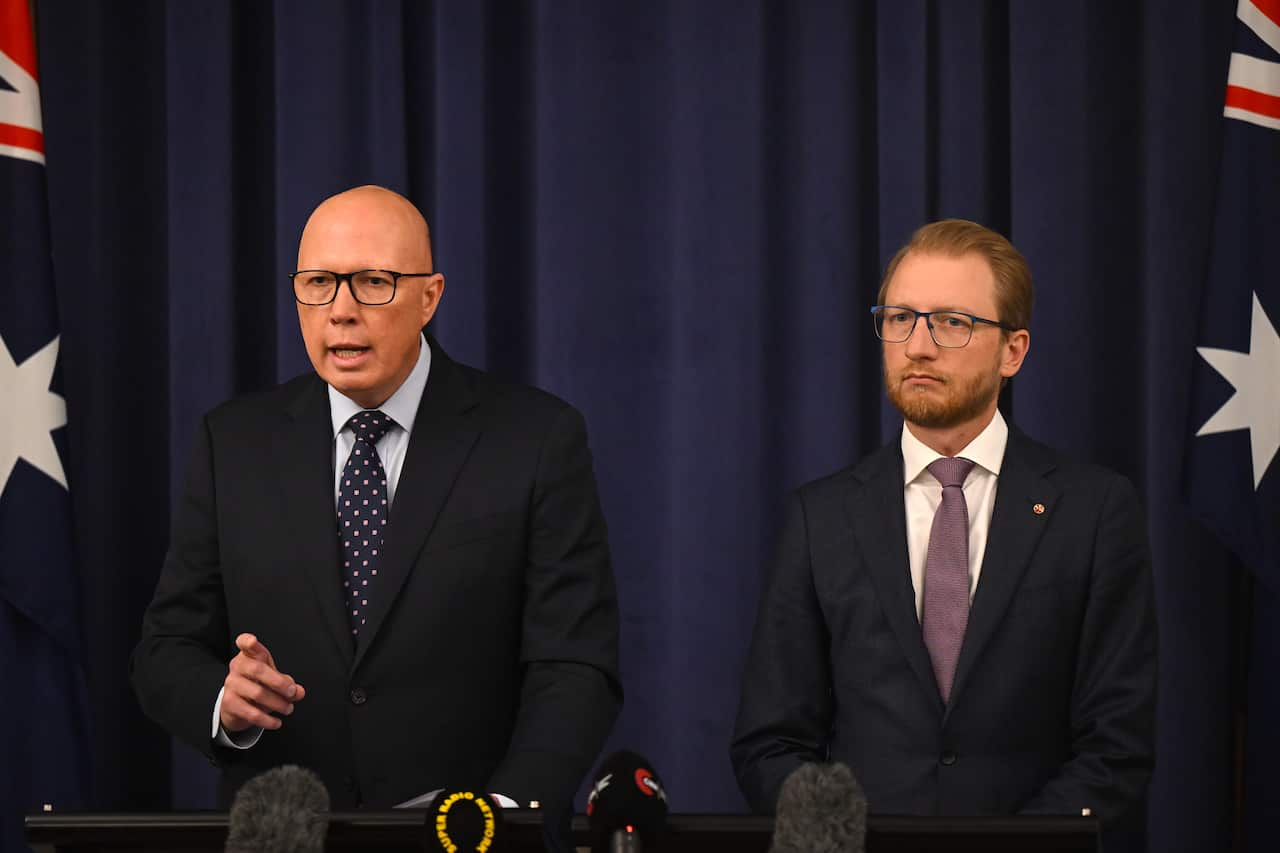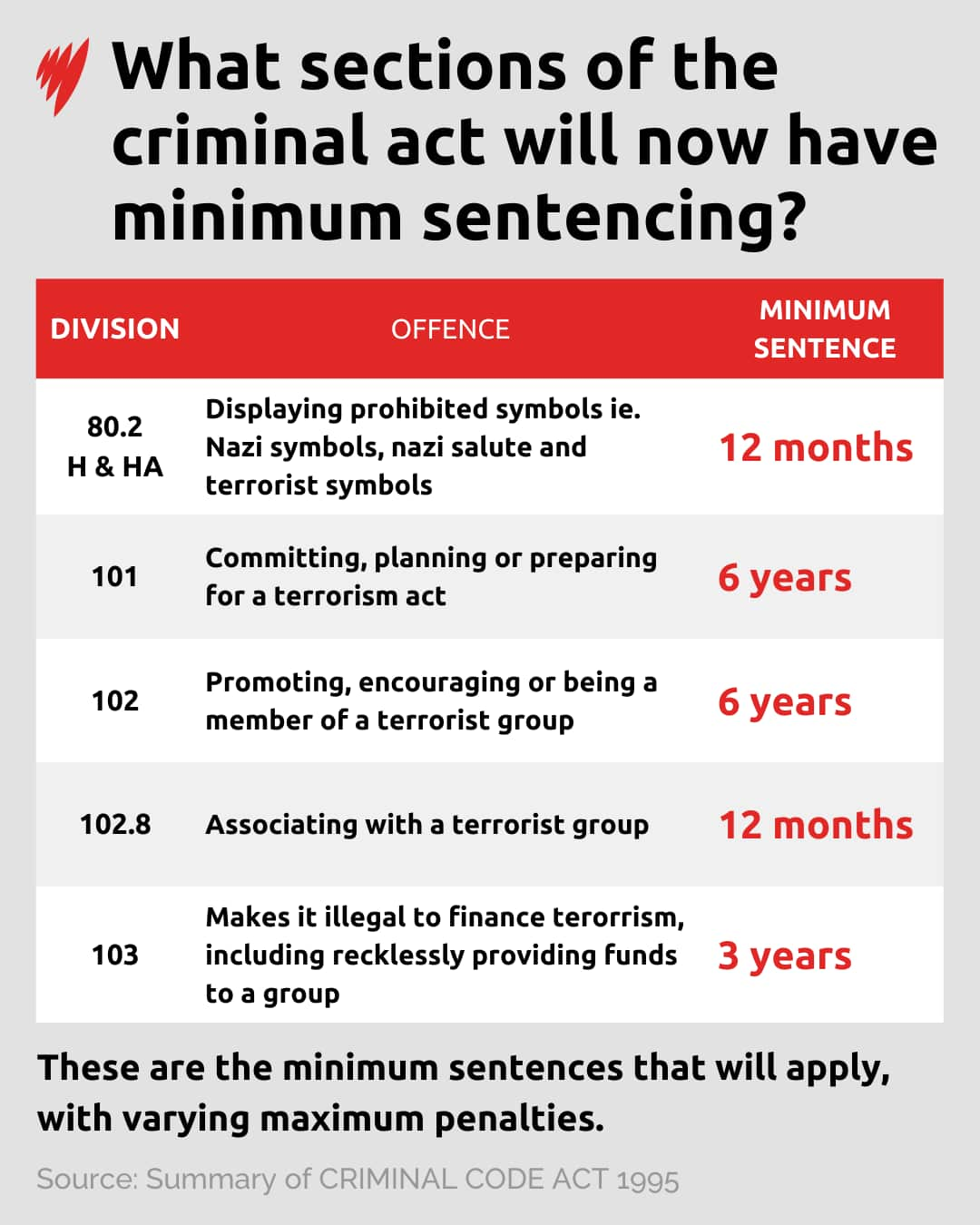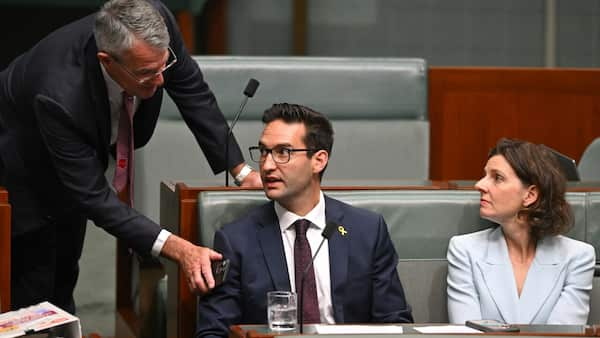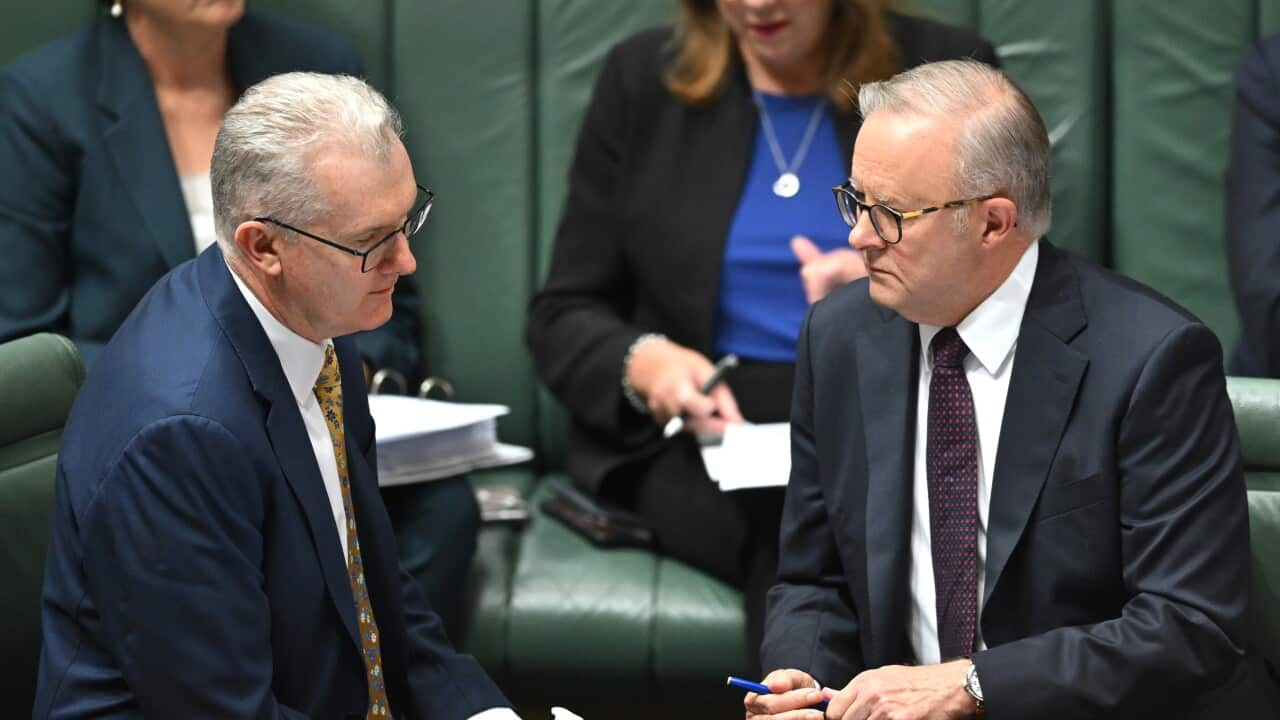Israel has welcomed new Australian laws that will jail people found guilty of some terrorism offences or displaying terror symbols, but some advocates have warned they could disproportionately hurt marginalised Australians.
The legislation, which cleared the Senate on Thursday, will create offences for threatening force of violence against particular groups, including on the basis of race, religion, sexual orientation, gender identity, disability or political opinion.
Mandatory minimum prison sentences were folded into the bill at the eleventh hour after Labor caved to the Opposition’s demands for stronger action against antisemitism, against the backdrop of a rise in .
This means the display of Nazi or terrorist symbols will carry a one-year mandatory prison sentence, three years for financing terrorism and six years for other terrorism offences, under amendments put forward by Home Affairs Minister Tony Burke.
“We welcome Australia’s decision to pass legislation against hate crimes in response to the alarming rise in antisemitism,” Israel’s foreign ministry said in a statement. “No Jew in Australia — or anywhere in the world — should have to live in fear.”
Liberal home affairs spokesperson James Paterson (right, with Opposition leader Peter Dutton), said the Coalition has led efforts to toughen terrorist act laws. Source: AAP / Lukas Coch
As Home Affairs Minister Tony Burke revealed Labor’s position on Wednesday night, he said the changes “send a message to the nation that these forms of hatred are not who we are”.
However, Liberal home affairs spokesperson James Paterson said Prime Minister Anthony Albanese had reluctantly yielded to Opposition calls.
“The parliament is not acting today because of the decisiveness of the Labor Party,” Paterson told reporters in Canberra.
“The prime minister has been dragged kicking and screaming to finally introduce tough legislation that will ensure there are real penalties for this behaviour.”
Labor’s shift is at odds with its party platform, which states that Labor opposes mandatory sentencing.
“This practice does not reduce crime but does undermine the independence of the judiciary, leads to unjust outcomes and is often discriminatory in practice,” the 2023 document reads.
Albanese defended the move and reiterated his government’s record on fighting antisemitism, including introducing legislation making hate symbols illegal.
“We want people who are engaged in antisemitic activities to be caught, to be charged and put in the clink. That’s my priority,” he told reporters in Queensland.
While the amendment passed with Coalition, government and some independent support, the Greens and other crossbenchers voted against it.
Why some view minimum sentencing as ‘deeply problematic’
Luke McNamara, professor in the Faculty of Law and Justice at the University of New South Wales, was surprised to see the minimum penalties introduced for these offences.
He told SBS News that while there are instances of mandatory sentencing under Australian criminal law, they have always been “hugely controversial”.
[Our laws] recognise that judges should make the independent decision about what a person’s sentence should be,” he said, with judges “taking into account all circumstances”.
McNamara said the development “needs to be recognised as deeply problematic and very much inconsistent with Australia’s traditions when it comes to sentencing and punishment”.
It’s a position reiterated by Liberal MP Andrew Hastie, who joined crossbenchers including Monique Ryan and Zoe Daniel in voting against the amendment in the lower house.
“I think it’s a foundation principle of our justice system that is for the courts to decide punishment, not politicians,” Hastie told SBS News.
“In fact, it can be downright dangerous for politicians to be deciding what punishments should be awarded in any case … [the courts] can apply a punishment fairly and effectively.”
Expanding offences and strengthening penalties should not be the default tool to prevent radicalism and extremism, Law Council of Australia president Juliana Warner said.
“It is vitally important in challenging times to uphold rule of law principles and not adopt measures that risk serious injustice,” she said.
These changes could prevent judges from taking the personal circumstances of an offender into consideration, which can disproportionately impact vulnerable groups.
The offences also have the potential to exacerbate existing uncertainties and inconsistencies in the law as complex and overlapping Commonwealth and state offences are more difficult to enforce, the council warned.
LGBTIQ+ advocacy group Equality Australia also criticised the mandatory minimums and called the legislation a “missed opportunity” to stamp out all forms of hate speech, as it does not include serious vilification.
“Outlawing incitement to violence while ignoring the toxic rhetoric and harassment that leads to it is simply putting a Band-Aid on a much bigger wound,” chief executive Anna Brown said.
Burke acknowledged the criticism on Wednesday night and listed several concerns about minimum sentencing as the “reason we have put in place a two-year review period”.
“This does not change the fact that the government … myself included, has expressed concern about the efficacy of mandatory sentencing,” he said.
“And the concern that it can, in some situations, potentially result in people not being found guilty when they should be … or take away an incentive for some people to inform on their co-accused.”
Independent MP Allegra Spender’s amendment to outlaw serious vilification or promotion of hatred, effectively criminalising hate speech, was unsuccessful.
, passed by both houses on Thursday afternoon, expands how fault is prosecuted, introduces a second-tier offence for those threatening violence and extends protections for groups beyond race and religion.
McNamara said the practical element of changes to the legislation, including the Opposition’s minimum sentencing amendment, “will be modest”.
With additional reporting by the Australian Associated Press.



